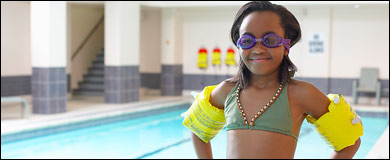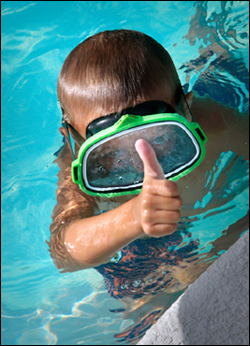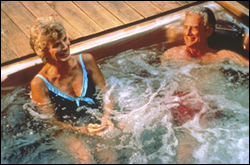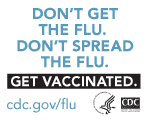Healthy Swimming Year-round
 Falling leaves and shorter days mark the end of the swimming season with most outdoor pools closing for the year. However, many people seek year round fun at indoor pools and spas. Swimming is a fun physical activity but it can be associated with the spread of germs during any time of year. These recreational water illnesses or RWIs are spread by swallowing, having contact with, or inhaling contaminated water from pools and spas.
Falling leaves and shorter days mark the end of the swimming season with most outdoor pools closing for the year. However, many people seek year round fun at indoor pools and spas. Swimming is a fun physical activity but it can be associated with the spread of germs during any time of year. These recreational water illnesses or RWIs are spread by swallowing, having contact with, or inhaling contaminated water from pools and spas.
While frequently associated with summer, swimming is year-round physical activity, with people visiting indoor pools, hot tubs, whirlpools and spas. Remember, swimming in a pool or soaking in a spa is a fun activity that can be associated with with the spread of germs during any time of the year. These germs cause recreational water illnesses or RWIs and are spread by swallowing, having contact with, or inhaling contaminated water from pools and spas.
The good news is you can protect yourself from RWIs.
Help keep germs out of the water by following the "PLEAs" of healthy swimming.
Three "PLEAs" for All Swimmers

Please don't swim when you have diarrhea. You can spread germs in the water and make other people sick. This is especially important for kids in diapers.
Please don't swallow the water. In fact, avoid getting water in your mouth.
Please practice good hygiene. Take a shower before swimming and wash your hands after using the toilet or changing diapers. Germs on your body end up in the water.
Three "PLEAs" for Parents of Young Kids
Please take your kids on bathroom breaks or check diapers often. Waiting to hear "I have to go" may mean that it's too late.
Please change diapers in a bathroom or diaper-changing area and not at poolside. Germs can spread to surfaces and objects in and around the pool and spread illness.
Please wash your child thoroughly (especially the rear end) with soap and water before swimming. Everyone has invisible amounts of fecal matter on their bottoms that ends up in the pool.
More information and resources are available on the Healthy Swimming Web site.
HOT Tips for Safety in Spas

Don't forget that spas can also be associated with RWIs. If you like soaking in spas, take these additional HOT and healthy swimming steps!
Heed… rules for safe and healthy use.
- Observe limits, if posted, on the maximum allowable number of bathers.
- Exclude children less than 5 years of age from using spas.
- If pregnant, consult a healthcare provider before using spas, particularly in the first trimester.
Observe...and listen to the spa and its surroundings. What should you notice?
- No odor; a well-chlorinated spa has little odor. A strong chemical smell indicates a maintenance problem.
- Smooth spa sides; tiles should not be sticky or slippery.
- Spa equipment is working; pumps and filtration systems make noise and you should hear them running.
- Spa temperature should not exceed 104°F (40°C).
- Check spa water; test for adequate chlorine or bromine (2–5 parts per million and pH (7.2–7.8) levels. Pool and spa chlorine or bromine test strips are available at local home improvement stores, discount retailers and pool supply stores. If you want to practice using them at home, visit Pool and Spa Test Strips Home Test Instructions. (
 159KB, 1 pages)
159KB, 1 pages)
Talk…to spa owners/staff and other spa users.
- What was the health inspector's grade for the spa after its last inspection?
- Are chlorine and pH levels checked at least twice per day?
- Are these levels checked during times when the spa is most heavily used?
- Are trained operation staff available during the weekends when the spa is most heavily used?
- What specialized training did the staff take to prepare for working at or operating a spa?
- Learn about RWIs and educate other users and your spa operator.
- Urge your spa management to spread the word about RWIs to spa staff and users.
Together with your pool or spa operator, you can make your recreational water experience a healthy one.
Visit the Healthy Swimming Web site and check out further information on Swimmer Protection.


